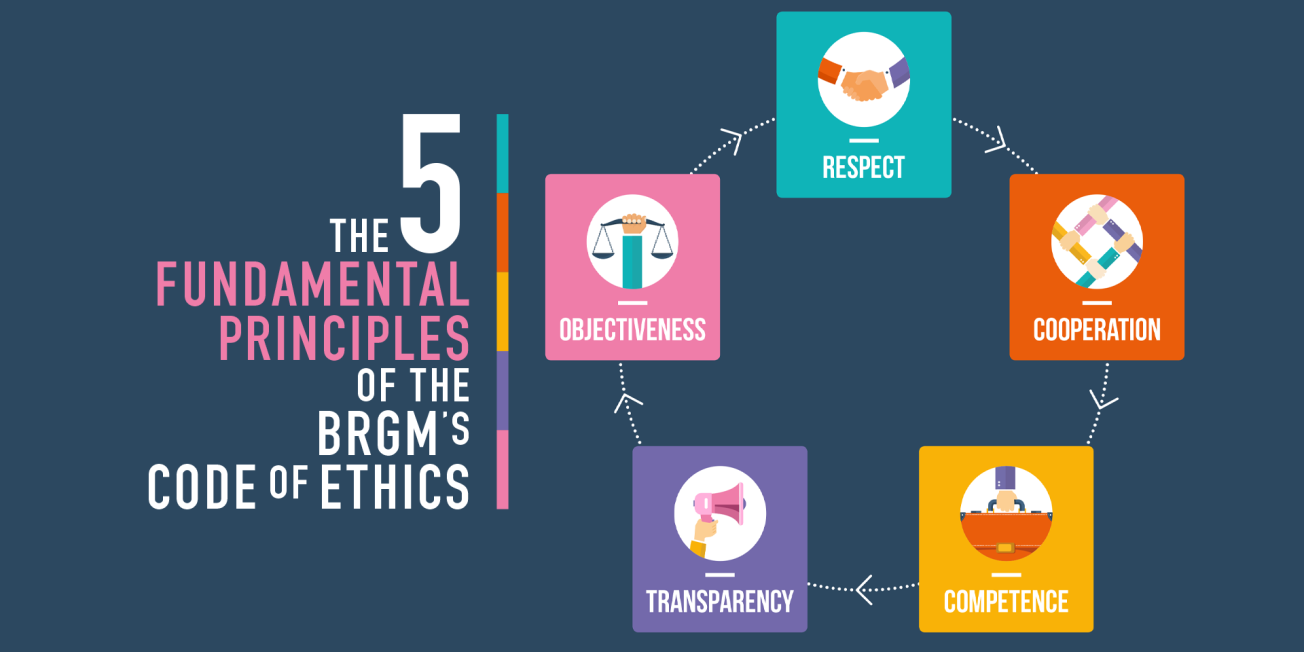The BRGM new Code of Ethics, based on five fundamental principles, is now on line.
12 December 2017

BRGM’s Code of Ethics.
© BRGM
Introducing a Code of Ethics was one of the goals set out in the 2013-2017 Performance Contract, as part of the BRGM's policy for Corporate Social Responsibility (CSR) and ISO 9001 and ISO 14001 standards certification.
The aim is to increase the quality of the BRGM's contributions to public and private policy development and to society as a whole and to build stakeholder confidence by developing a culture of integrity and responsibility in the daily work of all employees.
Phasing in an ethics system since 2014
The BRGM's ethics system has been gradually phased in since 2014, with:
- A project manager appointed specifically to develop and implement the Code of Ethics. A particular aim is to promote, among all employees, full awareness of the importance of integrity and responsibility in professional conduct in all areas and to help our organisation address any work situations that could raise professional ethics issues.
- An external professional ethics committee to provide the BRGM with critical insights on the design and implementation of its code of ethics and on its handling of cases involving professional ethics. The committee has four members:
- Alain Liger, formerly a member of the Advisory Council on the Economy, Industry, Energy and Technologies, and Secretary of the Strategic Metals Committee;
- Patrick Legrand, Honorary President of France Nature Environnement and a member of the National Public Debates Committee;
- Jean Claude André, emeritus Research Director with the CNRS, former Scientific Director of the INRS, former President or member of several research assessment committees in Brussels;
- Yves Le Bars, a former Director of several public organisations for targeted research, now President of the French Committee for International Solidarity.
- Case files on ethics questions raised by employees, specifically addressed by the Ethics project manager and subsequently validated by the hierarchy. Some fifty of these cases have been addressed since 2014.
- A Code of Ethics developed in 2016 and 2017 to complement the Charter on scientific expert studies. The Code sets out the 5 fundamental principles to which all employees must be attentive to ensure that they exercise integrity and responsibility in their professional conduct at all times. The Code was developed through a collaborative and iterative approach based on feedback from the ethics case files handled in 2014 and 2015 and on benchmarks provided by the main international, European and French reference texts. Altogether, about one hundred people representing the different specialisations, qualifications and generations of BRGM staff members contributed to the Code's development.







